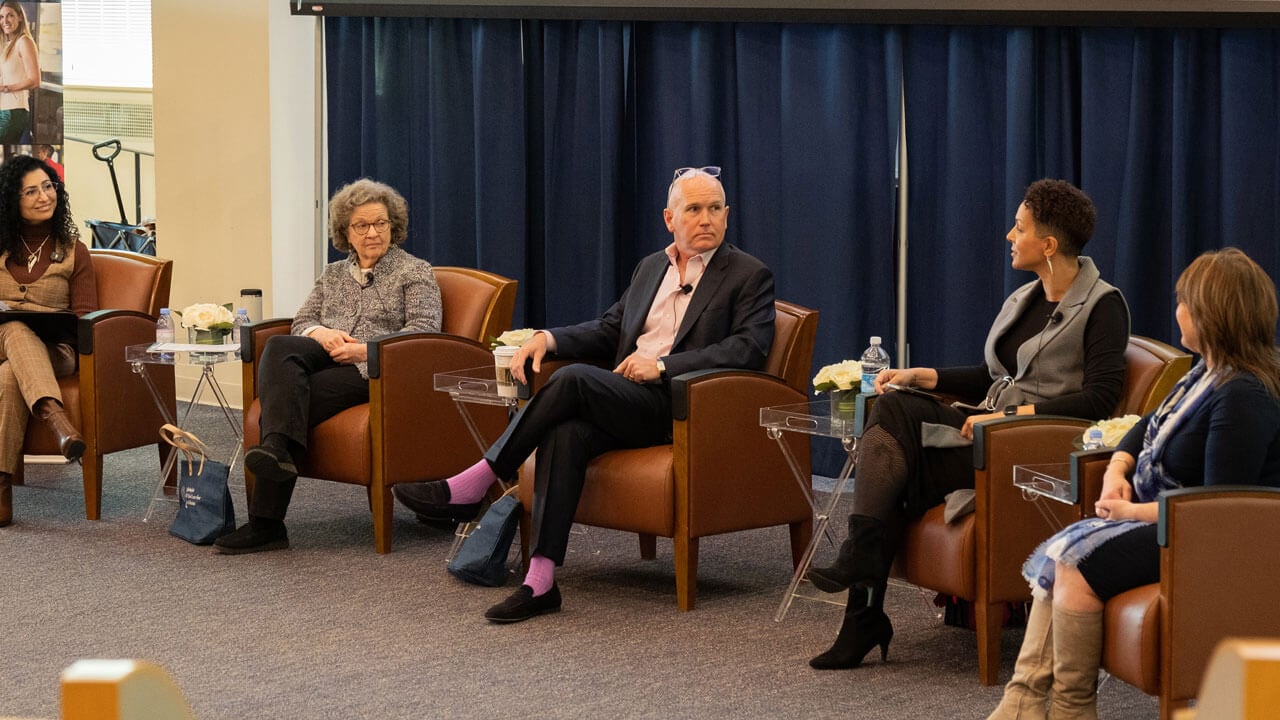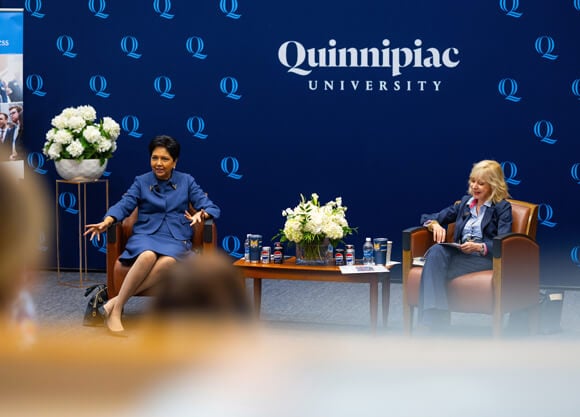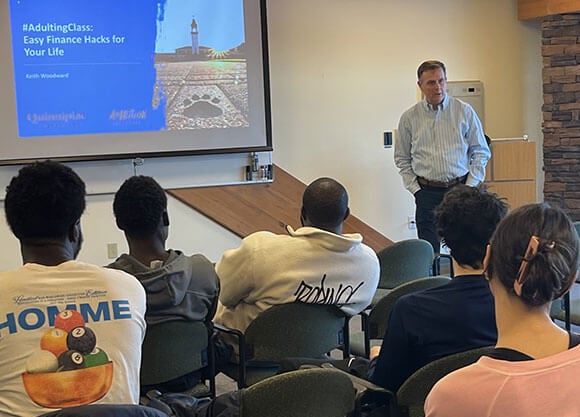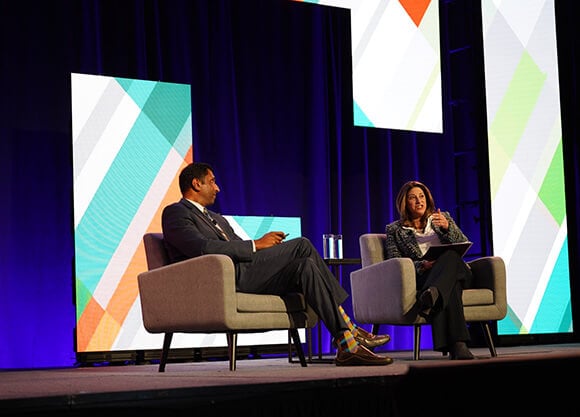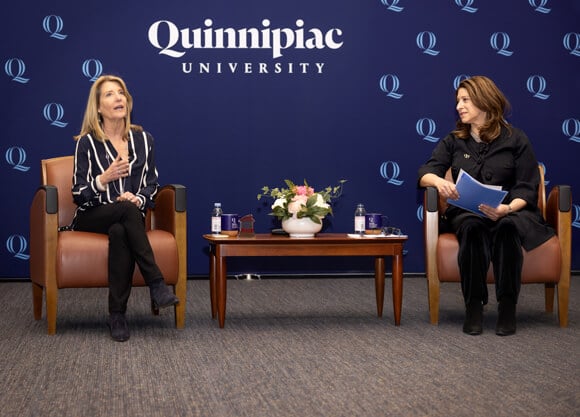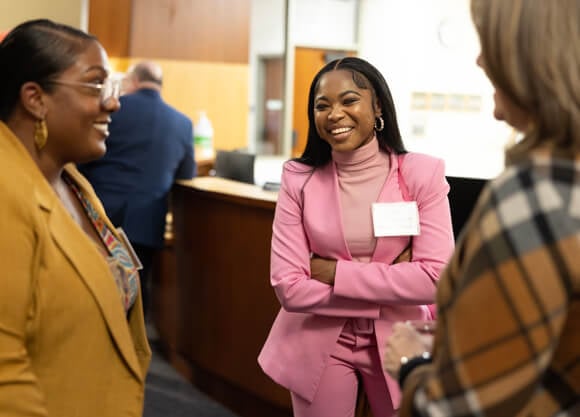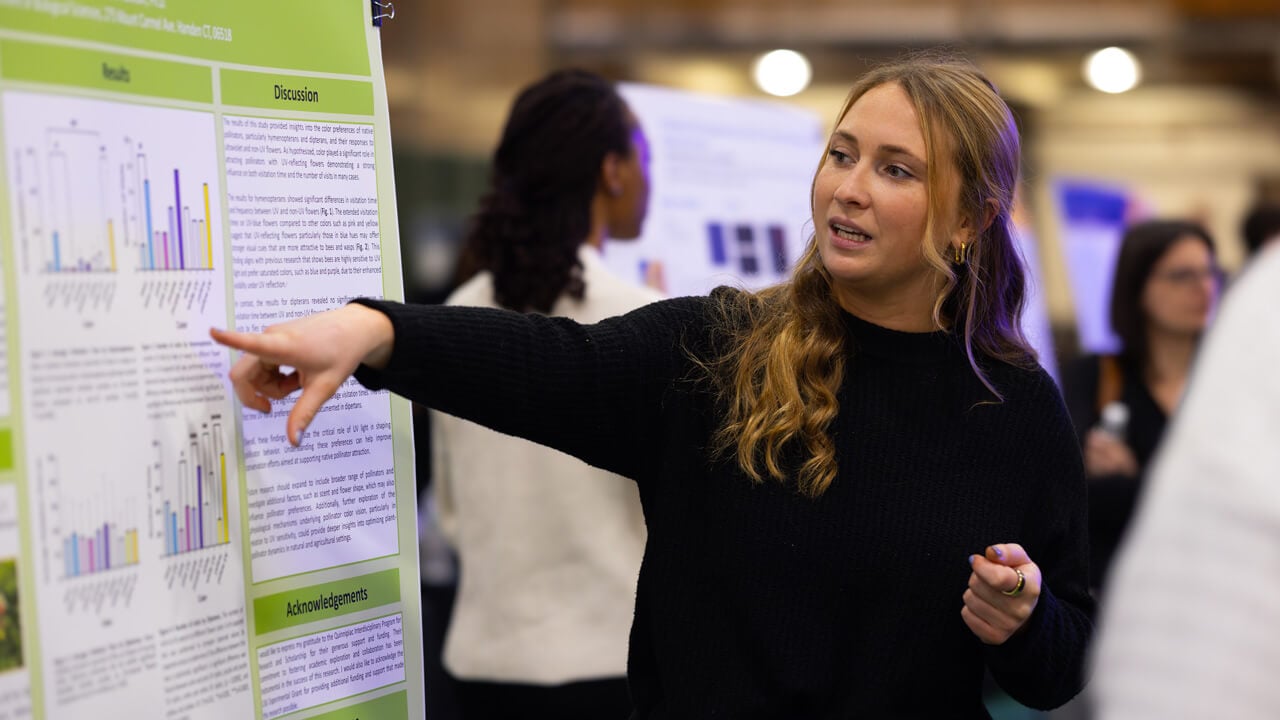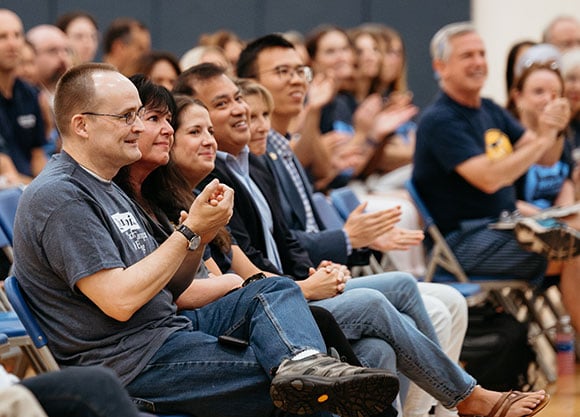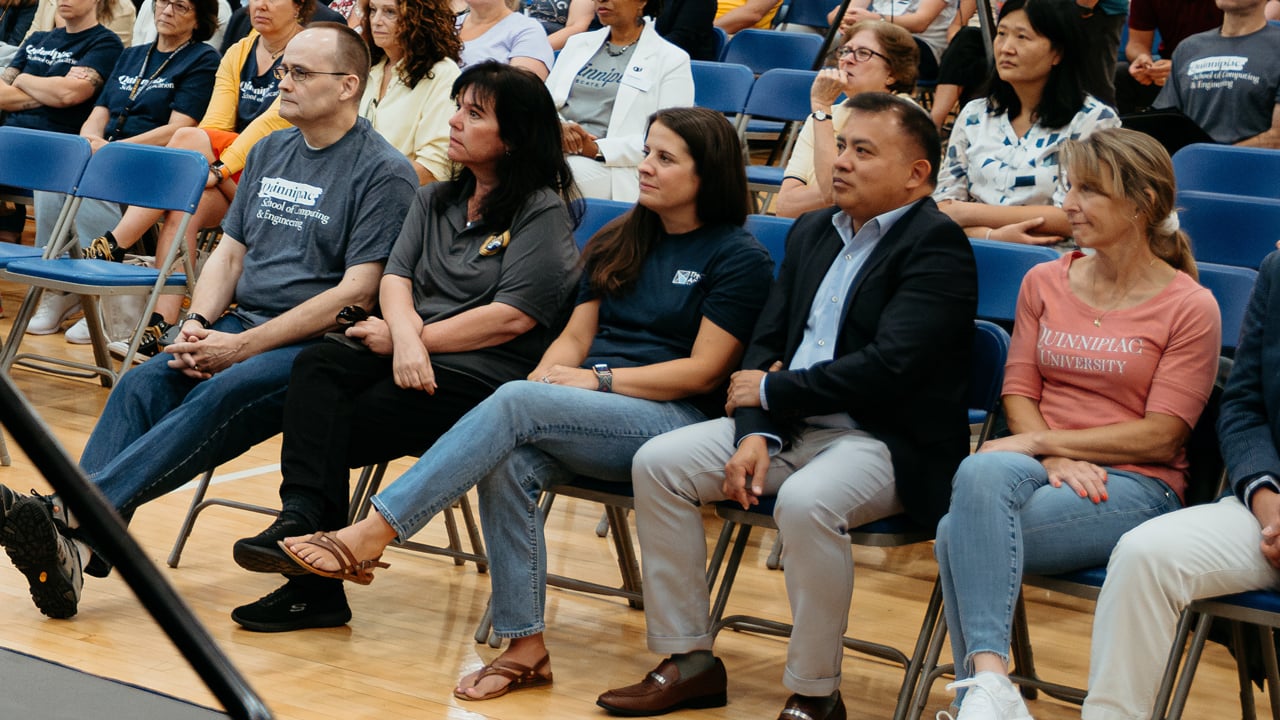
-
Yvonne Alston, chief culture architect and founder of Indelible Impressions Consulting, offered a unique perspective on how she teaches companies from various backgrounds about DEI concepts.
-
Ruth Freeman, a parenting educator and psychotherapist and president and founder at Peace at Home, explained how she helps working parents acknowledge the ongoing pediatric crisis and how they can overcome parental burnout.
-
Candace Freedenberg, founder of Untapped Potential, offered insight on how she has helped women on their career journey achieving a work life balance by advancing business structure and reuniting careers.
-
Paul Sullivan, founder of Company of Dads and Former New York Times columnist, shared how men can demonstrate allyship toward shifting the narrative that parenting and caregiving is gendered.
Alston explained how the pandemic created many hardships as families were losing loved ones at an unprecedented rate. She said that isolation and working at home allowed individuals to reflect and ask themselves “What matters most and what is important to me?”
Work culture has shifted, and some people may not feel like commuting three hours a day or do not feel like sacrificing special family events over that extra hour of overtime, she added.
Since the pandemic, there has been an exponential shift in the workplace, Freedenberg explained.
She discussed how our society has cultural and societal norms and that those ideas have shifted since the industrial age.
“We can all agree women and men equally get degreed and are degreed professionals,” said Freedenberg. “Equally men and women have career aspirations and dual careers, but the workplace has not shifted and caught up with that society. Before the pandemic, women opted out of their careers and chose caregiving. Not because women are not ambitious but because parenting is an unpaid full-time job.”
Whether or not the primary caregiver is male or female, workplaces should strive for their employees to succeed in and outside of the office, Sullivan said.
He said that managers have failed to realize that work and work structure is changing at a dramatic pace.
“The problem is you have a whole bunch of managers who had success performing their role a certain way by going to work all the time and hiring babysitters and nannies,” said Sullivan. “They look back and have anchoring bias and confirmation bias which means I did these tasks to get to where I am, so if you want to get to that level you have to replicate what I did which is poor modeling.”
Managers who follow this type of modeling typically have a sense of pride missing recitals, concerts and games with little to no remorse because they succeeded in their career, he said.
Of course, when individuals who have a manager who follows health and family-focused policies, mentees and employees will also take advantage of these policies like they are supposed to, he added.
Due to the pandemic, remote work has become an option at most companies where adults can throw in their laundry and wash dishes while all working from home, Freeman said.
“There was an invasion of Zoom meetings and phone calls which really interrupted family time,” said Freeman. “I want to help families negotiate in the workplace to navigate that balance of family and work life.”
It is crucial to set a boundary between work and personal life, Freedenberg said.
At the end of the discussion, Rua shared some wisdom from her 80-year-old mother when she was entering the workforce. She described life as a balancing act where individuals found themselves juggling an array of responsibilities.
In her analogy, Rua compared work and finance to resilient plastic bulbs, while family, friends, physical health and mental well-being were represented as fragile glass bulbs. She emphasized that while the former can withstand setbacks and bounce back, the latter are far more delicate, prone to shattering and difficult to repair.
Photo by Kira Beckerman '24
In this Article
Stay in the Loop
Quinnipiac Today is your source for what's happening throughout #BobcatNation. Sign up for our weekly email newsletter to be among the first to know about news, events and members of our Bobcat family who are making a positive difference in our world.
Sign Up Now